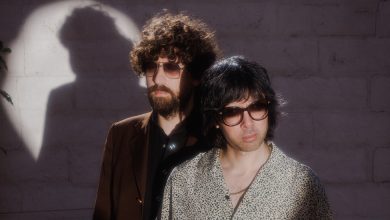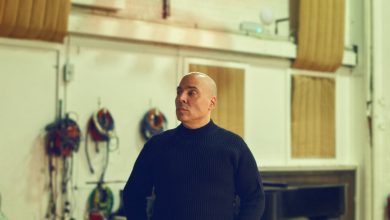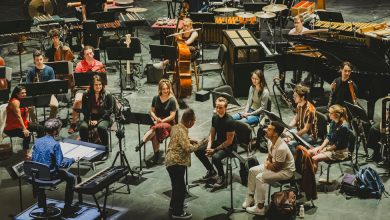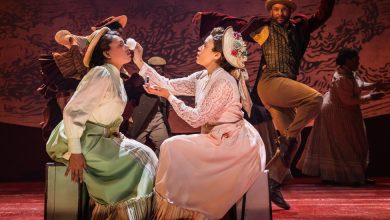Gustavo Dudamel, Superstar Maestro, Meets New York
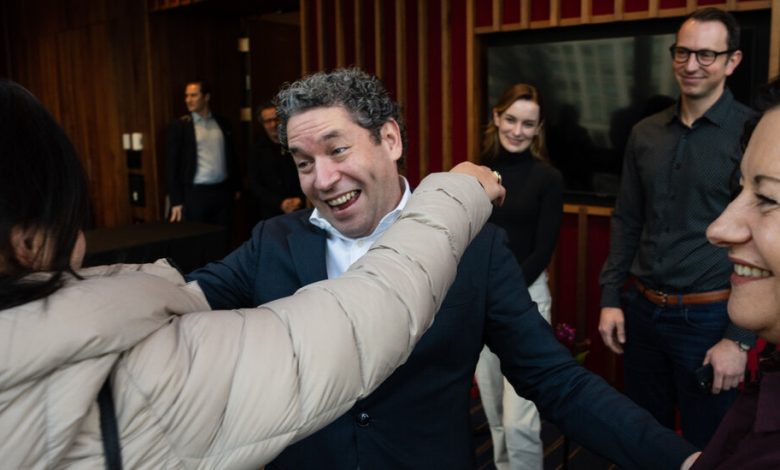
Gustavo Dudamel, groggy after a late-night flight from Los Angeles but still in good spirits, wandered into a roomful of New York Philharmonic employees, board members and donors on Monday afternoon and beamed.
“I feel like Mickey Mouse,” he said as people approached to shake hands and pose for photos.
It was Dudamel’s first visit to New York since being named the Philharmonic’s next music and artistic director — a post he will assume in 2026, after the conclusion of his tenure at the Los Angeles Philharmonic — and he was already playing the role of celebrity conductor.
During his two-hour appearance at David Geffen Hall, the Philharmonic’s home, Dudamel, 42, offered few specifics about his vision, saying he needed more time to get to know the city and the orchestra. But he put on full display some of the qualities that made him the Philharmonic’s choice: charisma, charm and an ability to bring fresh excitement to classical music.
He took part, with childlike giddiness, in a contract-signing ceremony. (“Are these presidential pens?” he asked as he prepared to put his name on the five-year document, which he had already signed electronically earlier this month, when the Philharmonic, in a major coup, poached him from Los Angeles.)
He took questions from the Philharmonic’s leaders and the news media, weighing in on the future of classical music; his tenure at the Los Angeles Philharmonic, which he has led since 2009; and his sports allegiances. (After initially declining to take sides in Mets versus Yankees, he said he was a fan of the Cardenales de Lara of Barquisimeto, Venezuela, his hometown; but also of the Los Angeles Dodgers, because of their Brooklyn heritage; and finally he declared, with an air of hesitation, “I love the Yankees, too.”)
And he mingled with the orchestra’s musicians, praising their sound; discussing Mahler’s Symphony No. 9, which they will perform together in May; and thanking them for the gifts they had provided while the orchestra worked to woo him. (He told the cellist Maria Kitsopoulos that her homemade cheesecake was a crucial reason he had decided to move to New York.)
Christopher Martin, the orchestra’s principal trumpet, who helped lead the search for a music director, embraced him. Among the orchestra’s players, Dudamel was the favorite from the start.
“This is like a dream, seeing you here,” Martin said. “Nobody can believe it.”
Deborah Borda, the Philharmonic’s president and chief executive, who hired Dudamel in Los Angeles in 2007, when he was 26, and spent the past year trying to lure him East, led a conversation with Dudamel on the stage of Geffen Hall before he took questions from the media.
“I always said you would have a ticker-tape parade when you came to New York,” she said after cheers and whistles erupted in the hall.
Dudamel said it was too early to lay out his plans for the orchestra, saying he did not want to impose his vision yet. But he reiterated his interest in creating an education program in New York similar to Youth Orchestra Los Angeles, known as YOLA, which is modeled on El Sistema, the Venezuelan social and artistic movement in which he trained.
He quoted the Spanish poet and philosopher Miguel de Unamuno in describing the need to do more to connect with residents, particularly in poor neighborhoods: “The freedom of the people is in their culture.” When a reporter suggested he might call the New York version of his youth orchestra “YONY,” Dudamel smiled, saying, “I love the name.”
“This is part of my DNA: to work with young people, to work with communities, to bring the orchestra to the community,” he said. “The New York Philharmonic, as the center of the artistic and musical life of this city, has to play a role, a very important role, in education.”
Dudamel will be the first Hispanic leader of the Philharmonic in a city where Latinos make up about 29 percent of the population. When a reporter from Telemundo, the Spanish-language network, asked what Dudamel made of this milestone, he said he had not given it much thought. Then he said he hoped his journey from Barquisimeto to some of the world’s most prestigious stages would be an inspiration.
“This can be a model so that girls, boys, young people, can have the certainty that dreams can always be achieved,” he said. “You have to work deeply, have a lot of discipline, and a lot of love for what you do, but it can be achieved.”
Throughout the day, a recurring topic was Dudamel’s hair, which has been a subject of fascination since he broke onto the international scene in his early 20s.
During a reception, a board member, Angela Chen, asked why he kept it shorter now, compared with his early days. “It feels more fresh this way,” he said, moving his fingers through his famous curls, which have started to gray. “One day it will be very white.”
At the news conference, Dudamel said he was no longer a “young promise” but that he still felt connected to the energy of his youth.
“When I was 24 — 23, 24, 25 — it was crazy; I was a wild animal, not only because of my hair,” he said. “I keep that wild animal Gustavo that is always there — only with less hair.”
Dudamel at moments seemed to be still processing his coming move to New York, which he has described as one of the most difficult decisions of his life.
When he saw the actor and filmmaker Bradley Cooper, a friend, before the news conference, he said being in New York felt surreal.
“I don’t know where to place myself right now,” he told Cooper.
On his phone, he showed Cooper a photograph he had seen in Geffen Hall of Leonard Bernstein, a storied predecessor at the Philharmonic with whom he is often compared. (Cooper is directing and starring in a coming film about Bernstein.) In the photo, Bernstein is standing in an elevator after a performance with his eyes closed.
“That says everything,” Dudamel said. “That exhausted look. He gave everything for music.”
At the end of his visit, Borda led Dudamel on a tour of Geffen Hall, which reopened last fall after a $550 million renovation. As Dudamel looked on, she scrolled through a digital display of the Philharmonic’s past music directors — Toscanini, Mahler, Pierre Boulez, Bernstein — comparing the length of their tenures. They stopped by the new restaurant adjacent to the lobby; on the way out, Dudamel, a whisky fan, marveled at a bottle of 18-year-old Macallan.
In a brief interview before leaving, Dudamel said he was exhausted but happy to finally celebrate his appointment with the orchestra, which he has conducted 26 times since making his debut in 2007.
“I feel that I am blessed in life to have the opportunity to come here — to have the opportunity to extend the family that I have built in Los Angeles,” he said. “There’s a connection between all of this. It’s a big step. It’s beautiful.”
